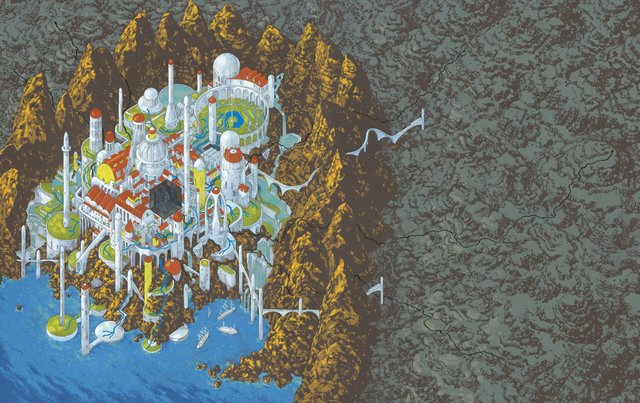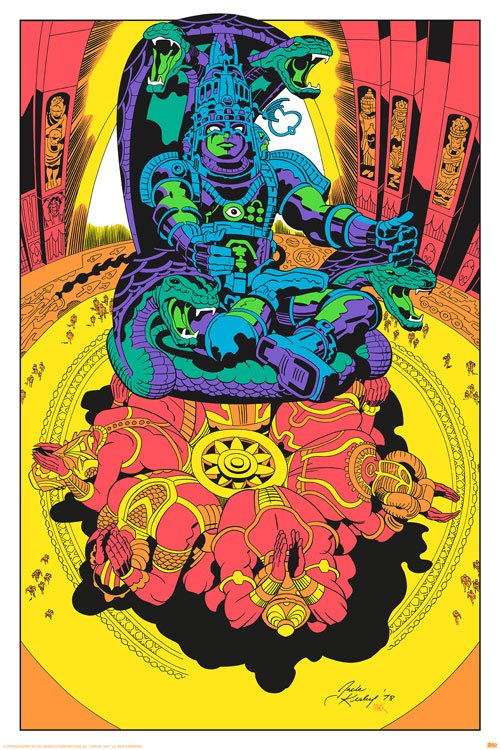Post-Scarcity Punk: review of 'Walkaway,' by Cory Doctorow
If EVER there was a book written for the Steemit demographic, it's probably this one.
It's got everything. Political philosophy, post-scarcity economics, makerspaces, designer drugs, bath-houses – even an arms race to achieve immortality. No specific mention of blockchains, but the idea of permanent decentralized storage is definitely implied. Basically every damn thing Cory Doctorow could cram into the biggest multi-generation epic on the near future that he has ever written.
Actually, let me qualify that. CD has written a lot more books than I was aware of, and I do not know page counts on all of them. I know him mostly from his short stories on Escape Pod or various “Best Of the Year” anthologies. Still, this feels like a Stranger In a Strange Land – level manifesto. Heinlein attempted to hit every single taboo in Western culture, as he saw them in the 1960s. SiaSL ranges across art, religion, sex, parenting, death, ritual cannibalism, and a whole bunch of other issues. Walkaway reads like that, but with more profanity and zeppelins.

The title is (I suspect) a reference to a Hugo-winning Ursula LeGuin story, “The Ones Who Walk Away from Omelas,” about the need we humans have to look down on other humans. In our society, it's the poor we look down on. Whether they are an ethnic minority or out-of-work blue-collar whites, their main cultural role is to remind the rest of us what will happen to us if we don't behave and go to work every day.
What happens when there is no more work?
The books starts at a communist party in Toronto. Not THE Communist Party – more like an anarchist Maker rave where they break into an abandoned factory, get high, dance, and fabricate furniture to give away. In this world, income inequality has only increased, and automation has thrown pretty much everyone but the super-rich and their wage-slaves out of work. This surplus humanity has nothing to do and nowhere to do it. The solution the book explores is walking away, literally leaving capitalist society behind and setting up open-source Maker communes in polluted brownfield sites and bankrupt towns. At one point a group of them re-occupies the collapsed city of Akron in Ohio.
These are not hippie communes with stinky outhouses. They are hi-tech, net-connected, moneyless miniature economies. They mine the waste stream of the capitalist “default” society to fulfill all of their material needs, and they share all their individual improvements of their processes in an open-source kind of way. They seem to have mostly leapfrogged biotech to a clean nanotech that can do the kinds of complicated polymer reactions that living things do, without relying on any actual animals or plants, and 3d-print the products into any shape desired. All they need is “feedstock,” which means any industrial product lying around unused. It's not quite Star Trek replicators, but close enough.
The conflict of the book is tribal. Having mostly won the culture wars in the 20th century, capitalism has no intention of stepping aside for “the first days of a better nation.” Little issues like personal and intellectual property are particular sticking points. Somewhat inevitably, the walkaways are corporately branded as either pitiful brainwashed cultists or dangerous terrorists, depending on the propoganda needs of the month.
And things escalate from there.

This is not so much a war story, like Roger Zelazny's Lord of Light, although Doctorow's uber-rich zottas are pretty warlike, and they are definitely seeking to become super-powered immortal god-emperors like the denizens of Zelazny's Heaven. However, where Great-Souled Sam played the Buddha as a trickster figure, alternately using deception and violence to push back against his fellow gods, the walkaways mostly use nonviolent means. Mostly.
I'm personally kind of bored with the whole Singularity brain-uploading thing. There's a small but growing field called embodied cognition that says the whole mind-as-software metaphor is a dead-end (I agree here). But it's out there in the mainstream, both in neuroscience and in pop culture, so I suppose CD had to deal with it if he wanted to treat the zeitgeist as comprehensively as Heinlein's SiaSL did. Happily, he makes no claim that the simulation based on a brain scan is anything other than a simulation, with a lot of external tweaking to keep it from going insane, but he does have characters say things like, “I feel like me,” which is probably not realistic, given what we know at this time.
But that's probably nitpicking.
The biggest problem I have with this book is that it seems to believe that recreating an egalitarian tribal culture can be done by changing the rules. I think that will not be enough. Cultures are made of people. We need to transform ourselves as individual people. There's a scene towards the end of the book involving riot police where this comes into play, but it doesn't play out in quite in the way that I'm thinking, described here by Zen abbess Blanche Hartman.
The police came with their masks and clubs, started poking people. And without thinking, I ducked under the hands of people to get between the police and students. I met this riot squad policemen face-to-face with his mask on and everything. He was close enough to touch. I met this policeman’s eyes straight on, and I had this overwhelming experience of identification, of shared identity . . . My life as a political activist ended with that encounter, because there was no longer anything to fight against.
This was the root of the Buddha's analysis of the human condition: we are all narcissists, who exerience ourselves as concretely separate from the rest of nature. Doctorow mocks it as “special snowflakiness,” and sets up walkaway society to consistently denigrate the wants of individuals as compared to needs of society as a whole. Pretty much every religion of the past 5,000 years has done exactly the same thing, except recent capitalism (yes, capitalism is a religion), through the same kinds of cultural rules, whether informal or written down. David Sloan Wilson has written books and papers on the subject.
… religions are so good at providing practical benefits that their members become wealthy, whereupon they lose the incentive to cooperate and try to loosen the very strictures that lifted them out of poverty. In addition, religions are not entirely fair in practice … leading to an endless cycle of corruption and renewal that has been documented by scholars for all religious traditions, around the world and throughout history.
Other scientists are attempting to simulate their way to cooperative behavior (using, ironically, a system called OLEMAS, an anagram of Omelas that I accidentally typed into a search engine).
Unfortunately, the history of religion shows us that rules are necessary, but not sufficient. Joseph Campbell wrote about the rituals of personal transformation used by tribal societies, rituals that killed the boy to birth the man. As you might guess from the metaphor, these were not friendly or gentle.
Elly Kipgogei, 19, remembers going through the ceremony at age 15.
First, he says, he had to crawl mostly naked through a tunnel of African stinging nettles. Then he was beaten on the bony part of the ankle, then his knuckles were squeezed together, and then the formic acid from the stinging nettle was wiped onto his genitals.
But all that was just warm-up; early one morning he was circumcised, with a sharp stick.
Doctorow's multiple protagonists struggle with their “special snowflakiness,” but they have no method, other than introspection, with which to overcome their narcissism. Because this is fiction, that works. In real life, it may require what Minnie Driver in Grosse Pointe Blank called “a swift spiritual kick to the head, that alters your reality forever.”
I do not advocate going back to knocking out children's teeth, or whipping them with stinging nettles, but I do think that there's research to be done on other ways to reliably catalyze the kinds of mystical experiences that lead individual people to embody the phrase, “Love thy neighbor as thyself.”
Anyway, read the book.
It's the story of transforming one society into another, better, society, but as LeGuin said in her story
Yet I repeat that these were not simple folk, not dulcet shepherds, noble savages, bland utopians. They were not less complex than us. . . I fear that Omelas so far strikes some of you as goody-goody. Smiles, bells, parades, horses, bleh. If so, please add an orgy. If an orgy would help, don't hesitate.
Cory Doctorow took this quote to heart.
You will notice that I have included no quotes from Walkaway itself, which is, I suppose, unusual for a review. That's partly because I think that's a lazy way to write a review. I prefer to add value with quotes from other books. I must admit, however, that it's partly because the book is not out yet, and I have no easy way of cutting and pasting quotes from the advance reader copy on my Nook into my laptop. I'm lazy, too. No special snowflakes here.
Again, read the book.
It's supposed to be out April 2017. Thanks for reading.
REFERENCES
https://en.wikipedia.org/wiki/The_Ones_Who_Walk_Away_from_Omelas
http://engl210-deykute.wikispaces.umb.edu/file/view/omelas.pdf
http://www.tor.com/wp-content/uploads/2015/11/Plotted-LeGuin-AndrewDeGraff-fullsize.jpg
http://www.nytimes.com/2015/01/13/opinion/david-brooks-the-child-in-the-basement.html
http://www.awakin.org/read/view.php?tid=789
https://en.wikipedia.org/wiki/The_Theory_of_Moral_Sentiments
http://pages.cpsc.ucalgary.ca/~denzinge/projects/olemas/olemas.html
so many books wtf to read next. SiaSL I should read i think. I love cannibalism
Only of those already dead; not the killing-and-eating kind.
damn pragmatists!
omfg. It is a wonderful piece, exploring the etics of consent on everything. Loved the book.
Also, blatant self-add: If you liked it, I'd love to hear your feedback on Liquid Reign (www.liquid-reign.com/access-the-book)